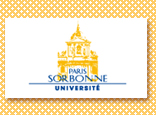The CCH Seminar in Humanities Computing features lectures and demonstrations
from leading international scholars and comuting professionals.
All events take place at King's College London on Fridays unless
otherwise noted and are open to the public. For further information
contact Dr.W. McCarty : http://www.kcl.ac.uk/humanities/cch/seminars.html
Abstract:
The CD-ROM has been developed so as to underline the interaction between the
hypermedia interface (Director) and the topics presented: maps of Edinburgh, Bath
and London, leading to screens and animations on architecture, literature, society and the
arts. Various time-based effects (e.g. changing location of sprite or use of fields)
alternates texts and pictures in different ways to evoke each writer's distinct sense
of narrative progression, or to illustrate musical passages; whereas the several types of
architectural and pictorial cityscapes, from the framed view to the panorama, are mediated
by either visible/invisible scripts or by animations. Site maps allow the user to change
from close-up to overview, in accordance with the combination of scales in the Georgian
mental space organised by cartographic techniques. The interface options offered by the
software thus cause the viewer to reflect on the modes of vision of the eighteenth
century.
Liliane Gallet-Blanchard, professor of English at the University of Paris IV-Sorbonne
and co-director of the Research Centre Cultures Anglophones et Technologies de
l'Information (CATI), conducts graduate seminars on humanities computing. As an
eighteenth-century specialist, she contributes to the ESTC database at the British
Library. She has published books and articles on IT for the Humanities.
Marie-Madeleine Martinet, professor of English at the University of Paris IV-Sorbonne
and co-director of CATI, conducts research methodology seminars. As a specialist of the
history of aesthetics, she works on hypermedia versions of artistic representational
techniques; she has published in those fields.
CATI has for several years worked on IT for the Humanities. It organises conferences
and presentations as well as publications; its members are currently designing a CD-ROM on
Georgian cities. It has just been recognised as a humanities computing centre by the
French Ministry of Education, Research and Technology.
|



